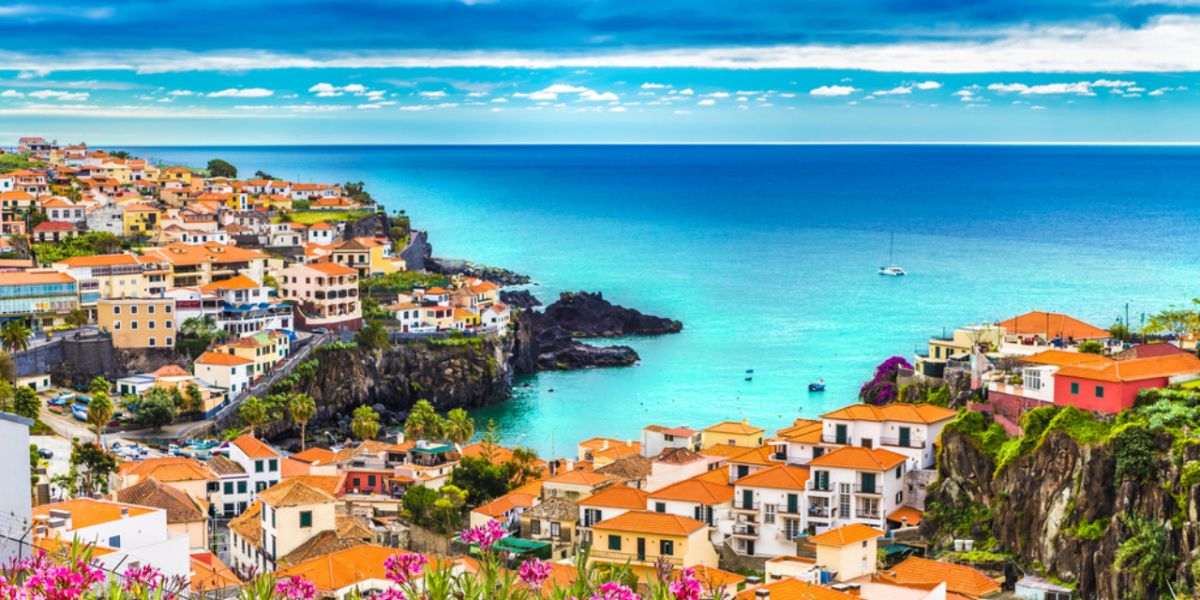
Over the past few years, Portugal has become quite the popular destination for retirement, much due to its low tax rates, affordable cost of living and modern and attractive lifestyle, along with a mild climate. It's also an EU country, an attractive destination for other EU residents looking to relocate. If you are considering retirement in Portugal, there are a few things you should take into account.
What you need to know before retiring in Portugal
Unless you are already very familiar with Portugal, you should consider making a short trip over to the country to learn more about it and see whether it meets your needs for retirement. Some factors to consider include:
- Buying or renting accommodation within budget and deciding on which areas to settle;
- Language and cultural differences between Portugal and your home country;
- Obtaining an appropriate visa, if required;
- Social Security for access to your pension from your home country;
- Relocating to Portugal with your pet;
- Moving with your car;
- Obtaining a local driver's license.
A great way to start planning is by checking out our Portugal Expat Guide, as well as local newspapers, which will give you a better idea of what life is all about in the country. This can also give you a feel for local real estate prices, important news issues for expats, and other considerations.
Best areas to retire in Portugal
You will have lots of options when settling in Portugal — and it all depends on what you are looking for. There are beautiful oceanfront neighborhoods, remote properties in the mountains, and busy and sophisticated cities like Porto and Lisbon. However, some areas in Portugal are more popular with retirees (and expats in general). And if you think you might feel more comfortable in an expat community, here are the areas to consider.
The Algarve
Especially popular with retirees and English-speaking expats in general. Over the past few years, French retirees settling in the Algarve have also increased in considerable numbers. It is famous for its beaches, surfing, and affordable real estate. Although it was once even dubbed the most affordable location for retirees in Europe by Forbes magazine, the cost of living has skyrocketed over the past few years. Currently, the Algarve is one of the most expensive districts in Portugal, especially for buying and renting property.
Madeira
Once a pretty off-the-beaten-path option, Madeira is an island in the Atlantic Ocean that is located about 1000 km off the Portuguese mainland. It's a great choice for those who want to stay away from city noise and be one with nature. It is also a great destination for exploring what the island lifestyle is all about. The local government has undertaken some efforts to promote Madeira as the ultimate digital nomad destination, openly collaborating with organizations and institutions to set up expat communities and facilities in Ponta do Sol. Furthermore, tax rates in Madeira are lower compared to the mainland, both for the IRS (income tax) and VAT.
Lisbon
Lisbon is the heart of Portugal, with a thriving expat community. If you are looking for all the amenities of big city life, Lisbon won't leave you disappointed. Here, you will never be short of things to do and explore in Lisbon, from a variety of events and festivals to museums, restaurants, expat clubs, and more. However, Lisbon is also by far the most expensive city in Portugal, and rent prices are outrageous, to the point locals are progressively getting kicked out of the city and moving into the suburbs and into neighboring cities.
Although the capital offers plenty to see and do, it is also losing its soul, as Lisbon is slowly (but surely) turning into tourist and expat Disneyland.
Northern Portugal and Porto
Northern Portugal is an area that is often overlooked by newcomers — except for Porto, which has a large expat population. However, even beyond the country's second city, this area has a lot to offer retirees, such as a beautiful countryside, picturesque mountains and extensive vineyards. Once again, you will find plenty of French retirees who purchased property and are now living in the lush Douro Valley.
As for Porto, it is currently struggling with the same issues as Lisbon, as property prices are reaching unbearable levels and pushing people into the suburbs. Restaurant and grocery prices have also gone up by about 50% to 75% within the past couple of years. If you stay in the downtown area, chances are you won't find any “Portuense” actually living in the area. On the other hand, if you stay away from Porto and settle elsewhere in Northern Portugal, the region is home to some of the lowest real estate prices in the country.
Retirement visas to Portugal
If you are a citizen of an EU country, retiring in Portugal is very easy. All you will need to do is apply for a residence permit within 3 months of arriving in the country. To do so, you'll have to book an appointment at your nearest AIMA office. The Agência para a Integração, Migrações e Asilo (AIMA) was created in late 2023 as the entity responsible for managing migration processes in Portugal.
Non-EU residents will need to apply for a retirement-based residence permit (called a D7 visa) in their home countries via a Portuguese consulate or embassy. Depending on the instructions provided by their consulate/embassy, applications may also be submitted in the e-visa portal or through third-party VFS Global.
At the start of the application process, which may take up to three months, you will need to provide the following documents:
- Proof of accommodation in Portugal;
- Proof that you own a Portuguese bank account;
- Certificate from home country stating you receive a monthly pension.
There is currently an application fee of €90.00. Once you submit your request, you'll receive feedback from official authorities within 60 days. If your application is approved, you may then travel to Portugal to obtain a residency permit. Usually, the consulate will set up a time and date for your appointment with AIMA in Portugal, but sometimes you'll have to book it yourself. At the appointment, you'll have to provide these in order to submit your residency permit request:
- Portuguese Tax Number (NIF);
- Proof of accommodation;
- Proof that you have sufficient funds to cover your expenses in the country.
The application costs €170,00, and AIMA will have to review your request and issue your residency card within 90 days. The permit is valid for 2 years, and can be renewed for another 3 years. After spending 5 years in the country, you can apply for permanent residency. After 10 years, it is possible to apply for Portuguese citizenship.
After you get your residency permit, you can request your immediate family members to join you and are eligible to use the national healthcare system (SNS). Plus, you are free to travel in the Schengen Zone.
Who is eligible for Portugal's Golden Visa?
For investors wishing to enjoy legal residence and the prospect of gaining citizenship through the Golden Visa scheme, they need to fulfill one of the following:
- Creating at least 10 job postings;
- Investing 500,000€ in scientific research activities;
- Investing 250,000€ in arts or in the preservation of local heritage sites;
- Investing 500,000€ in subscription units of mobile investment funds (non-related to the housing sector);
- Investing 500,000€ in creating a local company or supporting an existing one, as long as the investment leads to the creation or maintenance of at least 5 job positions for a minimum of 3 years.
Buying property in Portugal, on the other hand, used to be a better option for people planning to stay in the country for a long time. While many foreign investors used to buy 500,000€ worth of property in order to get access to the Golden Visa Scheme, the government has suspended that part of the program.
If you do qualify for the Golden Visa, obtaining it will give you the right to do the following:
- Enter Portugal without applying for any additional visas;
- Live and work in Portugal — provided you stay in the country for at least seven days/year;
- Travel visa-free within the Schengen Area;
- Use the national healthcare system (SNS);
- Apply for permanent residence and citizenship in the country after 10 years.
Retirement age and pension in Portugal
Starting from 2026 onwards, the retirement age in Portugal will be extended to 66 years and 9 months. The pension in the country is contribution-based and becomes available to residents if they have been making social security payments for at least 15 years during their employment. On the other hand, workers who have been making social security payments for at least 40 years can retire from the moment they turn 60.
If you are an EU citizen, you should be able to transfer your pension contributions to Portugal quite easily.
If you come from a country that is not a member state of the EU, you should check with the pension services in your country about the options for withdrawing your pension abroad. There are tax and social security agreements between Portugal and some non-EU countries, and this makes things much easier for relocating overseas.
Taxes for retirees in Portugal
It is recommended to enquire if there are non-double taxation agreements between Portugal and your home country before relocating. Otherwise, you may end up paying more tax than is required. Luckily, Portugal has several of these agreements in place with most developed countries, such as the US, the UK or any EU country (such as Germany, France, Belgium and so on). For pensions, the tax is usually paid in the country of origin. For example, if a retiree receives a pension from France, then the taxes are paid to the French State. For Portugal to recognize these payments, pensioners will need to fill out the 21-RFI Form.
In the US case, retirees will invariably still need to file their taxes in America, even if they live abroad. However, the aforementioned non-double taxation agreement will - at least in theory - avoid situations where expats need to pay taxes in both countries. Furthermore, American pensioners can take advantage of the Foreign Tax Credit Program, which allows participants to deduct any tax payments made abroad from the amount they owe the US government.
As you can see, and just like residents in Portugal are taxed on their worldwide income, your private pension that you receive from abroad may naturally also be liable to taxation. With that, in certain cases, you might be able to receive your pension from abroad without being taxed on it at all. To do this, you will most likely need to use an offshore pension scheme — like the Qualifying Recognized Overseas Pension Scheme (QROPS) available for citizens of the UK.
How much tax you pay depends on your residence type. You will be considered a Portuguese resident for tax purposes if you spend more than 183 days (consecutive or non-consecutive) in the country during the tax year, which is from January 1st to December 31st. If you spend less than 183 days in the country but own property in Portugal, you may still be considered a resident for tax purposes.
Why retire in Portugal?
Over the past few years, Portugal has become one of the most popular destinations for retirees in Europe, much due to its mild sunny climate, picturesque scenery, favorable taxation options and affordable living costs (at least compared to Western Europe and North America).
However, although the country is still a very sought-after option for foreign retirees, things have been slowly changing. Often seen as a low-budget option by North Americans, Scandinavians and other Western Europeans, the cost of living has skyrocketed in the big cities (Lisbon, Porto and the Algarve), especially when it comes to rent and property prices. Chances are that most people coming from those regions will still find Portugal relatively affordable, but it's far from being the cheap bargain it once was. Plus, pensioners receiving funds from their home country used to enjoy the special Non-Habitual Resident status (NHR), where all their income was taxed at a 10% flat rate. However, that policy was highly unpopular among locals, often regarded as unfair and as one of the main causes for the arrival of so many pensioners and digital nomads over the past couple of years, leading to a huge housing crisis. In response, the government scrapped this special regime in 2024, with the new right-wing administration rehabilitating the program later that same year (now called IFICI), but only for highly qualified and skilled professionals, such as college teachers or tech workers.
Nevertheless, there is still plenty to be excited about when it comes to retiring in Portugal:
The weather
Those living in cold and rainy climates see Portugal as the perfect escape into the land of constant sunshine. If you are looking for warmth, take a look at the southernmost regions of Portugal. Towns like Faro, Lagos, Tavira and others are especially popular with expats from the UK. Lisbon, Cascais and the Silver Coast have a more moderate climate and are known for their cozy beach communities. On the other hand, if you prefer to experience all four seasons, consider settling in Serra de Estrela and other northern inland cities, where you can find a more relaxed atmosphere and wonderful hiking routes.
Cost of living
According to the cost-of-living portal Numbeo, Portugal is more affordable compared to many other European countries. It is generally estimated that Portugal is 41% less expensive compared to the UK and over 30% less expensive than living in the US. Naturally, it depends on where in Portugal you choose to settle. Things tend to cost more in big cities like Lisbon and Porto, as well as in popular beach resorts and luxury coastal neighborhoods, such as the Algarve, Cascais or Estoril.
Safety
According to the 2024 Global Peace Index, Portugal is the 7th safest country in the world. Official stats disclosed by the Home Safety Annual Report (Relatório Anual de Segurança Interna – RASI) recorded a 4.6% drop in crime reports in 2024, compared to 2023. Nonetheless, violent crime went up by 2.6%. Still, Portugal remains one of the safest countries in Europe (and the world), although crime perception among the population is getting higher and higher. This can be attributed to the over-sensationalism of news in papers, tv reports, social media and politics.
As of now, no official data seems to point to the safety situation in Portugal getting any worse. Portugal still has a rather low crime rate, and violent crime is very rare.
Different living options
Portugal has something for everyone. Whether you want to retire in a big city, a vineyard in the mountains, or a luxury resort by the beach, you are sure to find what you are looking for. Plus, as it is a rather small country, you will be able to effortlessly change scenery: a drive from Porto to Lisbon, for instance, only takes 3 hours.
Language
In big cities like Porto and Lisbon, you should be okay getting by with just English. However, attempting to learn and speak Portuguese will be much appreciated by the locals — and they will gladly help you out if you are ever in trouble. What's more, Portuguese is the 9th most spoken language in the world (6th if accounting for just the natives), so learning it in your free time can be quite useful.
If you prefer to move to the countryside, learning some basic Portuguese will make your life substantially easier. Nonetheless, and depending on where you move, some rural areas (particularly in Alentejo and the Algarve) now boast sizeable immigrant communities – especially from South Asia – so communicating in English is perfectly possible.
We do our best to provide accurate and up to date information. However, if you have noticed any inaccuracies in this article, please let us know in the comments section below.








